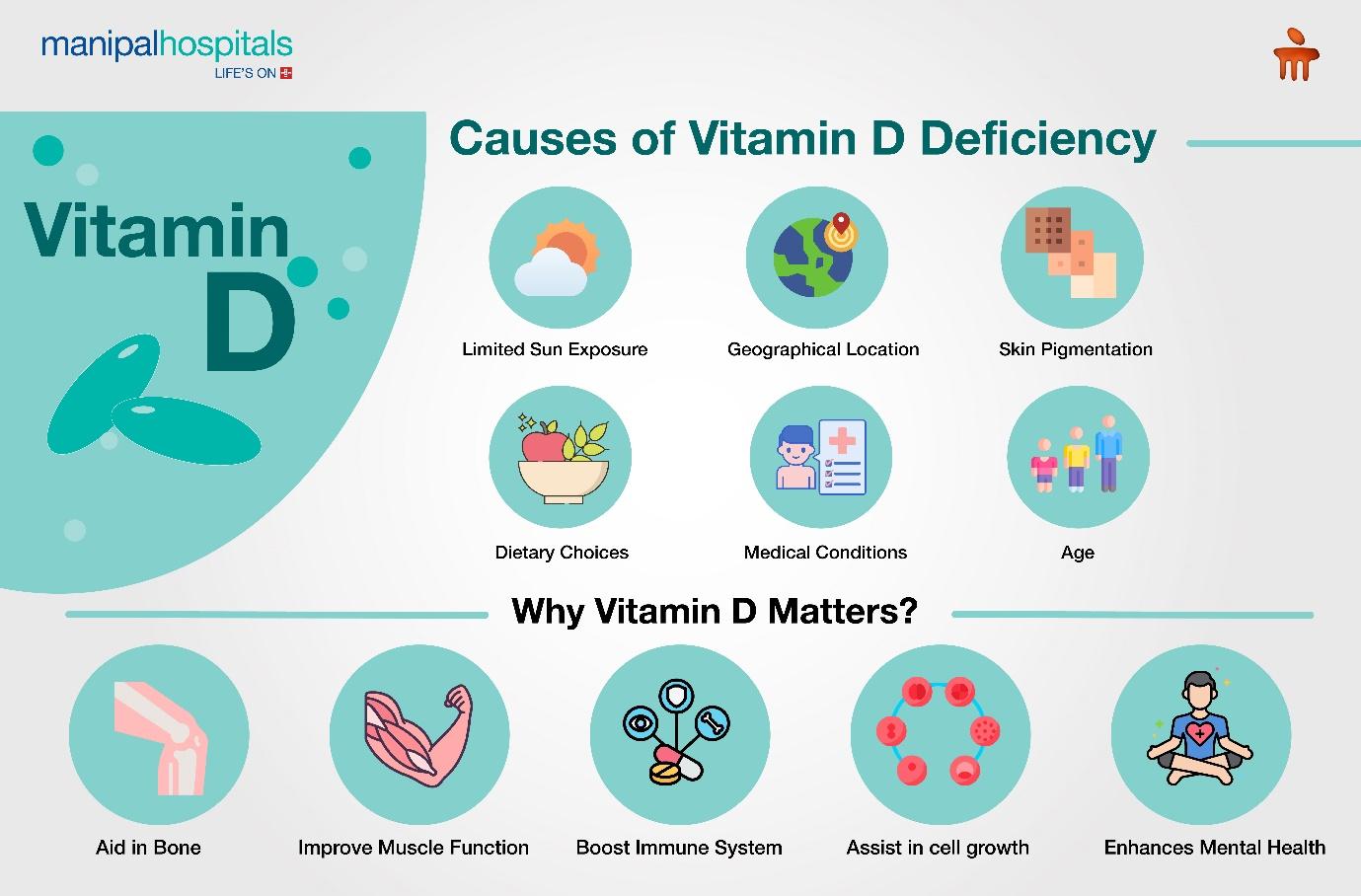
Our bodies are intricate ecosystems, where delicate balances between various elements determine our health and well-being. Among these crucial elements, Vitamin D stands out, often nicknamed the "sunshine vitamin" due to its primary source - sunlight exposure. But what happens when this crucial element falls short? Enter Vitamin D deficiency, a surprisingly widespread issue with significant health implications.
Synopsis
Understanding Vitamin D Deficiency
Vitamin D deficiency occurs when your body doesn't have enough of this essential vitamin. While sunlight exposure remains the primary source, dietary intake from fatty fish, egg yolks, and fortified foods also contributes. Unfortunately, modern lifestyles with limited sun exposure and dietary choices often pave the way for deficiency.
Studies suggest up to 80% of Indians might be deficient in Vitamin D, making it a public health concern demanding attention.
Why should we care?
The role of Vitamin D extends far beyond bone health. It impacts muscle function, immunity, cell growth, and even mental well-being. Deficiency, therefore, opens doors to various health issues.
Why does Vitamin D Matter?
Vitamin D wears many hats within our body:
- Bone Health: It aids calcium absorption, crucial for strong bones and preventing osteoporosis.
- Muscle Function: Deficiency can lead to muscle weakness, aches, and an increased risk of falls.
- Immune System: It bolsters our defences against infections and supports immune response.
- Cell Growth: Vitamin D plays a role in cell growth and differentiation, potentially impacting cancer risk.
- Mental Health: Studies suggest links between deficiency and depression, anxiety, and seasonal affective disorder.
What are the Causes of Vitamin D Deficiency?
Several factors contribute to Vitamin D deficiency:
- Limited Sun Exposure: Modern lifestyles often limit sun exposure, especially with sun protection practices.
- Geographical Location: People living further from the equator receive less sunlight, increasing deficiency risk.
- Skin Pigmentation: Melanin reduces Vitamin D synthesis from sunlight, making darker-skinned individuals more susceptible.
- Dietary Choices: Limited intake of Vitamin D-rich foods like fatty fish and fortified options can contribute.
- Medical Conditions: Certain medical conditions can affect Vitamin D absorption or metabolism.
- Age: Absorption efficiency decreases with age, increasing the risk in older adults.

Recognising Deficiency Symptoms
Vitamin D deficiency often unfolds silently, but subtle signs might exist:
- Fatigue and Tiredness: Feeling constantly drained could be a red flag.
- Muscle Weakness and Aches: Unexplained aches and pains, especially in muscles, warrant attention.
- Bone pain and Tenderness: Deficiency can weaken bones, leading to increased bone pain.
- Frequent Infections: Increased susceptibility to colds, flu, and other infections might be a clue.
- Delayed wound Healing: Wounds taking longer to heal could indicate impaired immune function.
- Mood Changes: Studies suggest links between deficiency and depression or low mood.
These symptoms can have other causes, too. Consulting a doctor for a proper diagnosis and tests is crucial.
Treatment Options for Vitamin D Deficiency
Thankfully, addressing Vitamin D deficiency is often straightforward.
- Increased Sun Exposure: Moderate, safe sun exposure on unprotected skin (avoiding sunburn) is the natural solution.
- Dietary Changes: Including Vitamin D-rich foods like fatty fish, egg yolks, and fortified options is beneficial.
- Supplementation: As per your doctor's recommendation, Vitamin D supplements can significantly raise levels.
Vitamin D deficiency symptoms, though often silent, can impact various aspects of our health. Understanding its causes, symptoms, and treatment options empowers us to take control. Embrace the sunshine, incorporate dietary sources, and consult your doctor for personalised guidance. Remember, sufficient Vitamin D is key to unlocking a brighter, healthier you!
FAQ's
This depends on your age, health status, and sun exposure. Consult your doctor for personalised recommendations.
Yes, excessive intake of supplements can lead to toxicity. Therefore, it is always recommended to follow your doctor's advice.
Moderation is the key here. Overexposure can increase the risk of skin cancer with other skin conditions. So, seek sun safely and avoid sunburn.
A simple blood test can measure your Vitamin D levels.
Yes, vitamin D deficiency in children can lead to rickets, a condition characterized by weak, soft bones and skeletal deformities. Adequate vitamin D intake is essential for proper bone growth and development in children.





















 4 Min Read
4 Min Read


















